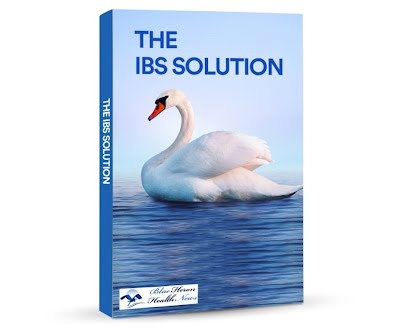
The IBS Program™ / The IBS Solution™ By Julissa Clay The IBS program comes in the format of a step-by-step program that can be purchased by anyone curious. The product is designed for everyone who wants to control their IBS symptoms and enjoy a pain-free life. One of the most impressive aspects of this program is that you may complete the workouts. You may do the workouts during the lunch hour, on a flight, or even at the house, and the great news is that you don’t need special equipment to complete them.
How does stress influence IBS symptoms?
Stress is a well-known factor that can significantly influence the symptoms of Irritable Bowel Syndrome (IBS). Here’s how stress affects IBS:
1. Gut-Brain Axis Dysfunction
- Communication Between the Brain and Gut: The gut-brain axis is a bidirectional communication system between the central nervous system (the brain and spinal cord) and the enteric nervous system (the nervous system of the gut). Stress can disrupt this communication, leading to changes in gut motility, sensitivity, and immune function. This dysfunction can exacerbate IBS symptoms such as abdominal pain, bloating, and changes in bowel habits (constipation or diarrhea).
- Heightened Gut Sensitivity: Stress can increase the gut’s sensitivity to stimuli, a condition known as visceral hypersensitivity. This means that individuals with IBS may experience heightened pain or discomfort from normal digestive processes, such as gas or bowel movements, which would not typically cause distress.
2. Altered Gut Motility
- Stress and Diarrhea: In response to stress, the body may release stress hormones like cortisol and adrenaline, which can speed up gut motility. For people with IBS, this can result in diarrhea or the urgency to have bowel movements, particularly during stressful situations.
- Stress and Constipation: Conversely, stress can also slow down gut motility in some individuals, leading to constipation. This is particularly common in those with IBS-C (IBS with constipation). The slowed movement of food through the digestive tract can cause bloating, abdominal pain, and the sensation of incomplete evacuation.
3. Impact on Gut Microbiome
- Microbiome Imbalance: Chronic stress can alter the composition of the gut microbiome, the community of beneficial bacteria that play a key role in digestion, immune function, and gut health. An imbalance in the microbiome (dysbiosis) can aggravate IBS symptoms by increasing inflammation, gas production, and gut permeability (leaky gut), leading to increased sensitivity and discomfort.
- Increased Gut Inflammation: Stress-induced changes in the microbiome can also lead to increased inflammation in the gut, which may worsen IBS symptoms such as pain, bloating, and irregular bowel movements.
4. Increased Intestinal Permeability (“Leaky Gut”)
- Stress and Gut Barrier Function: Stress can weaken the integrity of the gut lining, leading to increased intestinal permeability, commonly referred to as “leaky gut.” When the gut barrier becomes more permeable, toxins, bacteria, and partially digested food particles can pass through the gut lining and enter the bloodstream. This can trigger an immune response and lead to inflammation, which may exacerbate IBS symptoms and contribute to additional digestive discomfort.
5. Stress-Induced Behavioral Changes
- Changes in Diet and Lifestyle: Stress can influence dietary habits and lifestyle behaviors that directly impact IBS symptoms. For example, some individuals may overeat, skip meals, or consume trigger foods (such as fatty or processed foods) when stressed. These dietary changes can worsen IBS symptoms like bloating, cramping, and irregular bowel movements.
- Reduced Physical Activity: Stress can lead to a reduction in physical activity, which is essential for maintaining healthy digestion and regular bowel movements. A sedentary lifestyle may contribute to constipation or exacerbate other IBS symptoms.
6. Psychological Factors and IBS
- Anxiety and Depression: Stress often coexists with psychological conditions such as anxiety and depression, which are common in individuals with IBS. These conditions can worsen IBS symptoms through the gut-brain connection, leading to more intense and frequent episodes of discomfort.
- Anticipatory Anxiety: Many individuals with IBS experience anticipatory anxiety—fear or worry about future IBS symptoms or flare-ups, especially in social situations or when traveling. This stress response can actually trigger the very symptoms they are anxious about, creating a self-perpetuating cycle of stress and symptom exacerbation.
7. Exacerbation of Pain Perception
- Heightened Perception of Pain: Stress can amplify the perception of pain in the gut. People with IBS often have an altered pain threshold due to visceral hypersensitivity, and stress can worsen this sensitivity, making normal digestive sensations feel more painful and uncomfortable. Stress can also reduce the brain’s ability to filter out minor discomforts, leading to more intense pain experiences.
8. Sleep Disruption
- Stress and Sleep: Stress can interfere with sleep patterns, leading to poor-quality or insufficient sleep. Lack of sleep can worsen IBS symptoms, as sleep is essential for gut health and overall well-being. Sleep deprivation can exacerbate stress levels, creating a feedback loop that further worsens both stress and IBS symptoms.
Conclusion:
Stress has a powerful influence on IBS symptoms due to the interconnectedness of the gut-brain axis. It can alter gut motility, increase gut sensitivity, disrupt the gut microbiome, and affect behavior, all of which can exacerbate IBS symptoms. Managing stress through lifestyle changes, mindfulness practices, therapy, and relaxation techniques is a key component of managing IBS and reducing flare-ups.
Product Name : The IBS Program™ / The IBS Solution™
Author/Creator: Julissa Clay
Normal price was $149. But now you can buy it at $149 $49 (100$ OFF).